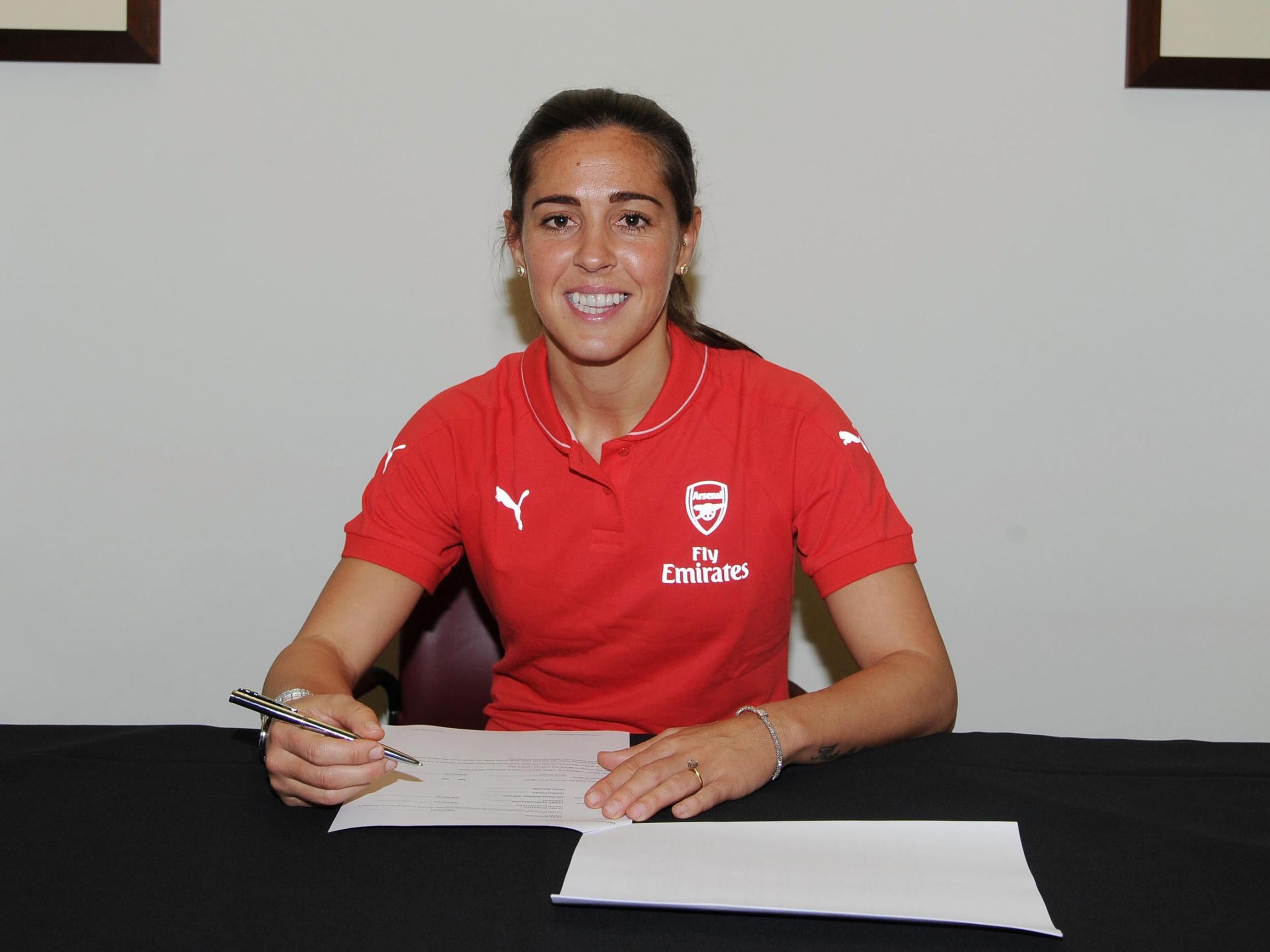Fara Williams gives women’s transfer window a sheen as big-name moves blow the title race open
A flurry of transfer activity this month is further evidence of the WSL’s rapid growth, while big-name moves have blown the title race wide open

As transfer windows go, January’s has begun with a bang, not that many will have noticed – for the trading is taking place in the FA Women’s Super League. England’s female footballers captured the nation’s hearts and back pages with their exploits at last summer’s World Cup while the men’s game was in hibernation. Now the Premier League is at full throttle, sucking up the oxygen of publicity like a turbo-charged Hoover.
The women’s game remains a poor relation in comparison – the UK record fee, for Fran Kirby’s move from Reading to Chelsea last summer, is thought to be £70,000. This is well short of fees in Europe, but a 10-fold increase since Birmingham paid the first real fee in 2012.
The flurry of transfers is further evidence of the sport’s rapid growth. Five current England players have moved already with the biggest deals involving two of Mark Sampson’s most influential, Fara Williams and Karen Carney. Williams has anchored England’s midfield for more than a decade and scored the penalty kick which secured the bronze medal in Canada. Carney, a versatile, creative attacking midfielder who also scored in the World Cup, is another cap centurion.
Carney has left Birmingham, her home-town club, for double winners Chelsea, further strengthening a team who have gone from no-hopers to the WSL’s best in two years. She joins a formidable forward line already featuring England team-mates Eniola Aluko, Kirby and Gemma Davison, together with PFA Player of the Year Ji So-yun.
Coach Emma Hayes said: “When we finished the league and were preparing for the European Champions League I felt the squad lacked depth. The focus has been on getting the young players out on loan and bringing in two or three who will improve us. On her day Karen is the best in the country and she is still incredibly ambitious.”
Williams has gone to Arsenal, a marquee signing that demonstrates the one-time perennial champions are finally responding to the rise of Chelsea and Manchester City.
“To secure Fara was massive,” said Arsenal’s Alex Scott, a long-time England team-mate. “That was the main player we wanted, but we are not finished yet. I got some stick last year for saying we had fallen behind, but we had taken our eye off the ball. We needed to push on and we have.
“We are now training in the day, we have our own section at the [men’s] training ground. It is all in place.”
The WSL is a young competition, its sixth season commences in March, and a pecking order is still being established. It has become apparent success is dependent on being connected to a men’s club, and the degree to which that club invests.
This does not just mean wages. Average club salaries are around £18,000 with wages peaking at about £40,000, though England players top up with central contracts of around £20,000. It is also about aspects like training facilities and medical support, much of which relates to how integrated a club is.
Liverpool were the first to challenge Arsenal this way and Williams’ arrival from Everton, hitherto Arsenal’s bridesmaids, spurred them to the title in 2013 and 2014.
Then Liverpool seemed to lose interest to the extent that manager Matt Beard was thought to be taking team kit home to wash it. Beard left at the end of the season for US club Boston Breakers followed by American goalkeeper Libby Stout. Next England striker Natasha Dowie (who had joined from Everton with Williams), Icelandic midfielder Katrin Omarsdottir and veteran Becky Easton went to promoted Doncaster Rovers Belles. However, rivals expect fresh investment and some of the exodus is attributed to players tiring of the artificial pitch Liverpool share with Widnes’ rugby league team.
Whatever the motivation, the treble signing is a coup for Belles, one of the sport’s pioneer clubs with ambitious development plans. Faye Lygo, their chair, said: “We wanted to strengthen but also felt we had to make a statement, to show we were not going into WSL just to make up the numbers but to challenge.”
There is confidence, too, at Birmingham, who many expect to struggle after losing Carney. Manager David Parker said they, too, were integrating more closely with the men and were confident their acclaimed academy would continue to supply players.
With the WSL window open until March, more deals are being lined up but amid the excitement there is concern that agents, some with unrealistic demands, have appeared. The sport remains reliant on subsidies and realism must reign or bust will follow boom.
Subscribe to Independent Premium to bookmark this article
Want to bookmark your favourite articles and stories to read or reference later? Start your Independent Premium subscription today.

Join our commenting forum
Join thought-provoking conversations, follow other Independent readers and see their replies